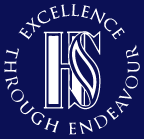SPALD History
Curriculum Intent
To have uncompromising aspirations for every individual and for our school to be an exceptional and inspirational community of lifelong learners.
Purpose
Who does not love a good story? A tale of intrigue where the plot can twist and turn in ways that were not obvious at the start. History is a messy, complex study of humans whose decisions, personalities and flaws have helped shape our world today. Students will be guided along this path and, through the engagement with evidence from a wide range of sources, they can gain an understanding of how individuals and events have been represented in the past. Students will access a wide-ranging curriculum and are encouraged to discuss concepts and ideas to help them develop as critical thinkers.
Key concepts
|
1st order |
2nd order concepts |
|
|
1 |
Politics |
Change and continuity |
| 2 |
Economic |
Causation and consequence |
| 3 |
Social |
Significance |
| 4 |
Religious |
Evidence/sources |
| 5 |
Historical interpretations |
How does our curriculum shape learners?
We want to develop empathetic young people and challenge stereotypes. Our curriculum provides opportunities for students to be empathetic learners who are given opportunities to communicate their opinions. They are able to draw on their understanding of the past in order to become more aware of the challenges society is facing.
| Academic end points | |
| Year 7 | By the end of year 7, students will have started to engage in historical enquiry focusing on the Ancient and Medieval Britain period exploring the different institutions that held power (monarchy, the church) and how they used this power. They will begin to be curious and ask questions about the past. They will start to use key historical terms in their writing. They will have developed a foundational understanding of how the past has been interpreted and how and why interpretations about a particular event may differ. They can start to critically investigate primary source material, looking at the content, origin and nature of the source in order to reach supported conclusions. |
| Year 8 | By the end of year 8, students will have continued to engage in historical enquiry focusing on how and why different societies changed politically, socially and economically in the 17th to 19th centuries. They will continue to be curious and ask questions about the past. They will have continued to use key historical terms in their writing and do this with increased accuracy. They will have continued to develop their understanding of how the past has been interpreted through the unit of the British empire. By identifying differences and similarities between today and the past, they will make clear connections between their own lives and those of people in the past. They will continue to critically investigate primary source material, looking at the content, origin and nature of the source in order to evaluate its validity. |
| Year 9 | By the end of year 9, students will have confidently engaged in historical enquiry focusing on the causes and course of modern conflict. They will frequently ask questions about the past. They will continue to use historical terms in their writing. They will have continued to embed their understanding of how the past has been interpreted and how different interpretations can be supported by a higher frequency of specific own knowledge. They will be able to evaluate the interpretations in order to reach their own reasoned conclusions about the validity of these views. They will continue to build on the skills to more confidently, critically investigate primary source material, looking at the content, origin and nature of the source in order to evaluate its validity. They are able to explain, support or challenge the source with their specific own knowledge expanding on key quotes. |
Click here to visualise the History learner journey
Key features of learning
We explore the past and the concepts of change and continuity, causation, interpretations, significance and evaluation are developed throughout our curriculum and through KS3. Our lessons are shaped through enquiry questions that focus on how and why events have occurred.
At KS3 we look to give students a broad understanding of change over time, introduce them to some of the key events and concepts from the past that we then revisit throughout the three years. We look to encourage them to enjoy learning about the past and to challenge their traditional conceptions of the past.
What will you see in History lessons?
- Paired and class discussions, giving the students the opportunity to articulate and develop their thoughts and opinions. Students will have worksheets.
- Visual aids
- Clips
- The use of Elklan strategies.
What will you see in books?
- Lesson titles are framed as questions
- Worksheets are used.
- Scaffolded work, including missing word activities.
What formative assessment will you see in History?
- There will be a range of summative assessment used. Quizzes (Satchel one)
- Questioning (e.g. cold-calling)
- Written answers
- End of topic tests
What is the department currently reading and why?
These History books link to the topics taught:
- Marc Morris: ‘The Norman Conquest’
- Ian Mortimer: ‘A Time Traveller’s Guide to Medieval England’
- Miranda Kaufmann: ‘Black Tudors’
- Andrea Stuart: ‘Sugar in the Blood’
- Hallie Rubenhold: ‘The Five’
- Emma Griffin: ‘Liberty’s Dawn’
- Fern Riddell: ‘Death in Ten Minutes’

